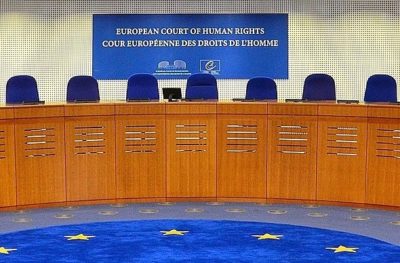Norway’s often-criticized child welfare practice has been scolded again, this time in a case in which state welfare agency Barnevernet had taken an infant away from the child’s biological parents. The latest loss at the European Court of Human Rights in Strasbourg is expected to have more consequences for Norwegian law and how the state agency interprets it.

The European Court of Human Rights ruled that Barnevernet’s child care decision in the case it most recently judged was “well-founded,” but that the agency put “excessive” restrictions on the parents’ rights to contact with their child. In this case, the agency had arranged to move both mother and child to a state-run care facility shortly after birth and then placed the baby in a foster home a few weeks later.
Barnevernet was rightly concerned, according to the court, about the mother’s history of mental health problems, drug abuse and domestic disputes with her husband. When the mother withdrew her consent to stay at the care facility and wanted to move home with her child, the agency took “emergency” action to put the baby girl into the foster home. Visits with her parents were then restricted to four, and later six times a year until the family finally was reunited three years later.
Long debate over child care competency and rights
The case is just one of many in which Barnevernet has been accused of violating the human rights of parents and/or their children. Another 30 cases are under appeal at the European Court, after parents have failed to prevail in Norwegian courts with their legal complaints about losing custody.
Norway also lost a child care case at the European Court earlier this autumn in which foster parents were allowed to adopt a young child against the will of the child’s mother. That ruling has been viewed as another example of deficiencies in how both Barnevernet staff and the Norwegian courts handle emergency placements of children. There have been more, fueling a long-standing debate over both Barnevernet’s competency and whether it’s too strict or too liberal in how it tries to balance the rights of both children and parents.
“In many cases, the reasons for acting in the child’s best interests are well-founded and clear, with placement in foster care the only possible solution,” wrote Einar C Salvesen, a Norwegian specialist in clinical psychology, in a recent commentary in newpaper Klassekampen. “It can also be that a large majority of cases are not based on violence or assault in the home but rather on what’s viewed as a lack of parental competence on the part of the child’s biological parents.”
That’s where issues become unclear and where Barnevernet itself has been charged with incompetence. Salvesen stressed that the “drama and trauma” in such cases “cannot be overestimated.” Apart from the use of force in psychiatry, he wrote, “there’s hardly an area in our society where the state steps so drastically into people’s private sphere.”
‘Listen to the criticism’
Salvesen and many others claim that it’s time for state officials to listen to the criticism around Barnevernet. In the latest case, the parents complained to newspaper Aftenposten that neither Barnevernet nor the courts seemed willing to accept that they could improve their own behaviour and become better parents. Emergency measures taken by Barnevernet are supposed to be temporary, but arguably have often wound up as long-term placements, as in their case. Aftenposten reported on Tuesday, just before the latest ruling was released, that 29 newborns have been been taken away from their biological parents in Norway so far this year. Only one of the emergency placements was rejected by the county social welfare boards that must approve them.
Only a few complaints make it all the way to the European Court, and its rulings against Norway highlight what critics call the need for reform of current procedures and law. The European Court has consistently ruled that only the most extreme offenses should break the biological ties between parents and children before parents have had a chance to prove themselves.
Norway’s government minister in charge of children- and family issues, Kjell Ingold Ropstad of the Christian Democrats, acknowledges “the long string of complaints” against Barnevernet that have been taken to the European Court. “In light of this I think it’s important that new child protection law contains good evaluations of human rights,” he told Aftenposten. “Verdicts from the European Court will be used as background in this work.”
newsinenglish.no/Nina Berglund

